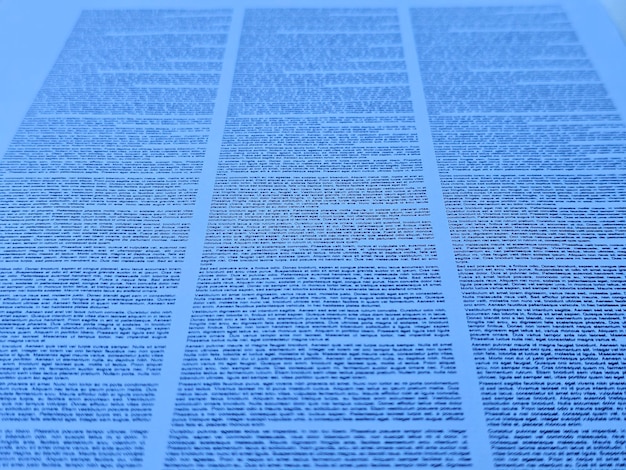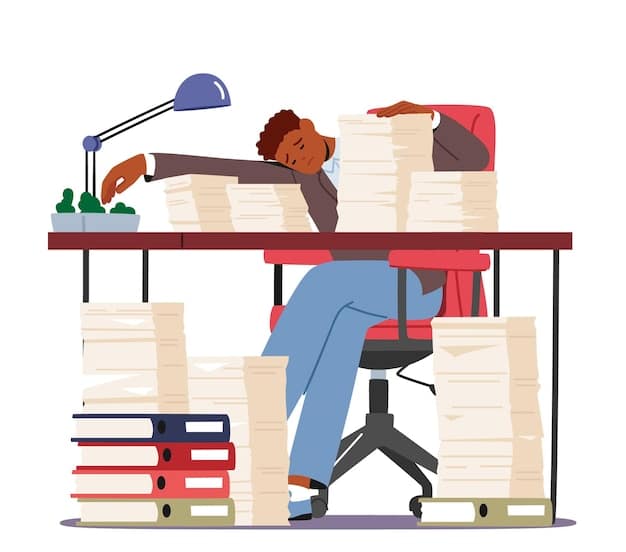Decoding Government Benefits: Top 5 Application Mistakes to Avoid

Decoding the Fine Print: Avoid These 5 Common Mistakes in Your Government Benefit Application: Navigating government benefit applications can be complex. Key errors include incomplete information, missed deadlines, misunderstanding eligibility criteria, neglecting to disclose relevant facts, and failing to seek clarification when needed.
Applying for government benefits can feel like navigating a labyrinth. The process is often complex, filled with intricate details and confusing jargon. Understanding the fine print is crucial, and this article, **Decoding the Fine Print: Avoid These 5 Common Mistakes in Your Government Benefit Application**, aims to guide you through the most common pitfalls.
Understanding Government Benefit Applications
Government benefit programs are designed to support individuals and families in various aspects of life, from healthcare and housing to education and unemployment. However, the application processes for these programs can be daunting. Each program has its own set of rules, eligibility requirements, and application procedures. Navigating these complexities can be challenging, and even a small mistake can lead to delays or denials.
One of the primary reasons why people struggle with government benefit applications is the sheer volume of information and the level of detail required. Applications often require extensive documentation, including proof of income, residency, and other personal information. Furthermore, the language used in these applications can be confusing, filled with legal and bureaucratic terminology that is difficult for the average person to understand.
Why Mistakes Happen
Several factors contribute to the common mistakes made in government benefit applications. A lack of understanding of the application requirements is a significant issue. Many applicants may not fully grasp what information is needed or how it should be presented. This can lead to unintentional errors or omissions.
Time constraints and pressure can also contribute to mistakes. Applicants may rush through the process to meet deadlines, overlooking crucial details or providing incomplete information. Additionally, emotional stress and anxiety can impair one’s ability to focus and accurately complete the application.

To help you successfully navigate the application process, here are five common mistakes to avoid:
- Incomplete Information: Leaving sections of the application blank or providing insufficient details.
- Missed Deadlines: Failing to submit the application and supporting documents by the required dates.
- Misunderstanding Eligibility Criteria: Applying for a program without fully understanding the eligibility requirements.
- Neglecting to Disclose Relevant Facts: Omitting or misrepresenting information that could affect eligibility.
- Failing to Seek Clarification: Not asking for help when confused or uncertain about any aspect of the application.
By being aware of these common pitfalls, you can take steps to avoid them and increase your chances of a successful application.
Mistake #1: Incomplete Information
One of the most frequent reasons for application rejection or delays is providing incomplete information. Government agencies require specific details to assess your eligibility for a benefit program, and any missing data can halt the process.
Applications often ask for extensive personal information, including your name, address, social security number, date of birth, employment history, and financial details. Each piece of information is essential for verifying your identity and assessing your qualifications for the benefit.
Common Forms of Incomplete Information
Incomplete information can manifest in various forms. Leaving sections of the application blank is a common issue. This can occur if you are unsure how to answer a question or if you simply overlook a field. Another form is providing insufficient details. For example, if an application asks for your employment history, you may only list your current job without including previous employers.
Additionally, failing to provide supporting documents is a significant oversight. Many government benefit programs require you to submit documentation to verify the information you provide in your application. This might include copies of your driver’s license, social security card, tax returns, bank statements, or pay stubs.

To avoid this mistake, thoroughly review the application form before submitting it. Ensure that you have answered every question accurately and completely. Gather all necessary supporting documents and double-check that you have included everything required. If you are unsure about any aspect of the application, seek clarification from the government agency or a qualified advisor.
- Read Instructions Carefully: Pay close attention to the instructions provided with the application.
- Double-Check Forms: Before submitting, review the form to ensure all fields are completed.
- Gather Documents: Collect all necessary supporting documents.
- Seek Help: Don’t hesitate to ask for assistance if you’re unsure about anything.
By ensuring your application is complete, you significantly increase your chances of approval and avoid unnecessary delays.
Mistake #2: Missed Deadlines
Missing deadlines is another common pitfall in the government benefit application process. Government agencies often have strict timelines for submitting applications and supporting documents. Failing to meet these deadlines can result in your application being rejected or delayed.
Each government benefit program has its own set of deadlines, and it is crucial to be aware of these dates. Some programs may have rolling deadlines, while others have specific application periods. Missing a deadline can mean waiting until the next application period, which could be months away.
Why Deadlines Are Important
Deadlines are in place to help government agencies manage the volume of applications they receive and ensure timely processing. When applications are submitted after the deadline, it can disrupt the agency’s workflow and delay the distribution of benefits to those who need them.
Keeping track of deadlines can be challenging, especially if you are applying for multiple programs. It’s essential to stay organized and mark important dates on your calendar. Set reminders to ensure you have enough time to complete the application and gather all necessary documents before the deadline.
To avoid missing deadlines, take the following steps:
- Note Key Dates: Record all relevant deadlines on a calendar or in a digital reminder system.
- Submit Early: Aim to submit your application well before the deadline to allow time for any unforeseen issues.
- Follow Up: If you are unsure about the status of your application, follow up with the government agency to ensure it was received on time.
Being proactive and organized can help you avoid the frustration and disappointment of missing a crucial deadline.
Mistake #3: Misunderstanding Eligibility Criteria
Applying for a government benefit program without fully understanding the eligibility criteria is a common mistake that can lead to wasted time and effort. Each program has specific requirements that applicants must meet to qualify for benefits. These requirements can vary widely, depending on the program’s purpose and funding.
Eligibility criteria often include factors such as income, age, residency, disability status, and family size. Some programs may also have specific requirements related to employment history or education. It is essential to carefully review these criteria before applying to ensure that you meet the necessary qualifications.
Consequences of Misunderstanding
Misunderstanding the eligibility criteria can result in your application being rejected, even if you have accurately and completely filled out the form. This can be frustrating, especially if you are in urgent need of assistance. Additionally, applying for a program for which you are not eligible can tie up resources that could be used to help those who do qualify.
To avoid this mistake, take the time to thoroughly research the eligibility requirements of each program you are considering. Read the program guidelines carefully and pay attention to any specific definitions or clarifications provided by the government agency. If you have any questions, don’t hesitate to contact the agency for assistance.
- Research Programs: Investigate and understand available programs.
- Read Guidelines: Carefully review the eligibility criteria.
- Check Requirements: Ensure you meet all specific qualifications.
- Seek Advice: Consult an expert if needed.
By understanding the eligibility criteria, you can make informed decisions about which programs to apply for and increase your chances of receiving the benefits you need.
Mistake #4: Neglecting to Disclose Relevant Facts
Honesty and transparency are paramount when applying for government benefits. Neglecting to disclose relevant facts can have serious consequences, including denial of benefits, legal penalties, and damage to your reputation. It is crucial to provide accurate and complete information on your application, even if you believe it might negatively impact your eligibility.
Government agencies rely on the information you provide to assess your eligibility for benefits. Omitting or misrepresenting facts can lead to incorrect assessments and unfair distribution of resources. Additionally, providing false information is often considered fraud, which can result in fines, legal action, and even criminal charges.
Relevant facts that must be disclosed typically include income, assets, employment status, marital status, and any other factors that could affect your eligibility for benefits. It is important to be thorough and transparent in reporting this information, even if it is not explicitly requested in the application.
To avoid neglecting to disclose relevant facts:
- Be Honest: Provide truthful information at all times.
- Be Thorough: Include all relevant details, even if not explicitly requested.
- Review Carefully: Double-check your application for accuracy and completeness.
- Seek Guidance: If unsure, seek advice from a legal expert.
By being honest and transparent, you can ensure that your application is processed fairly and avoid potential legal issues.
Mistake #5: Failing to Seek Clarification
One of the biggest mistakes applicants make is failing to seek clarification when they are confused or uncertain about any aspect of the application process. Government benefit applications can be complex, and it is common to encounter confusing terminology, unclear instructions, or questions that are difficult to answer.
Many applicants hesitate to ask for help, either because they are embarrassed, intimidated, or simply unaware that assistance is available. However, seeking clarification is essential for ensuring that your application is accurate and complete. Government agencies are often willing to provide guidance and support to applicants who need it.
There are several ways to seek clarification when applying for government benefits. You can contact the government agency directly by phone, email, or in person. Many agencies also have online resources, such as FAQs and tutorials, that can provide answers to common questions. Additionally, you can seek assistance from community organizations, legal aid societies, or qualified advisors who specialize in government benefit programs.
To avoid failing to seek clarification:
- Identify Questions: Note down the points that need clarity.
- Contact Agencies: Reach out to the relevant agencies for help.
- Utilize Resources: Use available online resources and FAQs.
- Consult Advisors: Seek support from community organizations.
By seeking clarification, you can gain a better understanding of the application process and increase your chances of a successful outcome.
| Key Point | Brief Description |
|---|---|
| 📝 Incomplete Information | Fill out all required fields and provide necessary documents. |
| ⏰ Missed Deadlines | Submit applications and documents before the specified deadlines. |
| ❓ Eligibility Criteria | Understand and meet all eligibility requirements for each program. |
| 🗣️ Seeking Clarification | Ask for help when confused about any part of the application process. |
Frequently Asked Questions
▼
Contact the government agency immediately. Explain the error and ask how to correct it. They may allow you to submit an amended application or provide additional documentation to rectify the mistake.
▼
Visit the official website of the government agency that administers the program. The deadlines are usually listed on the program’s page or in the application instructions. You can also call the agency’s helpline.
▼
Commonly required documents include proof of identity (driver’s license, passport), proof of income (pay stubs, tax returns), proof of residency (utility bills, lease agreement), and social security card. Specific requirements vary by program.
▼
Check the program’s official website for detailed guidelines. Contact the agency’s helpline or visit a local community organization that provides assistance with government benefit applications. Legal aid societies can also offer guidance.
▼
Review the denial letter carefully to understand the reasons for the rejection. You usually have the right to appeal the decision. Follow the instructions in the letter to file an appeal and provide any additional information that supports your case.
Conclusion
Successfully navigating government benefit applications requires careful attention to detail, a clear understanding of the requirements, and a willingness to seek help when needed. By avoiding these five common mistakes – incomplete information, missed deadlines, misunderstanding eligibility criteria, neglecting to disclose relevant facts, and failing to seek clarification – you can increase your chances of receiving the benefits you deserve and ensuring a smoother, more efficient application process.



